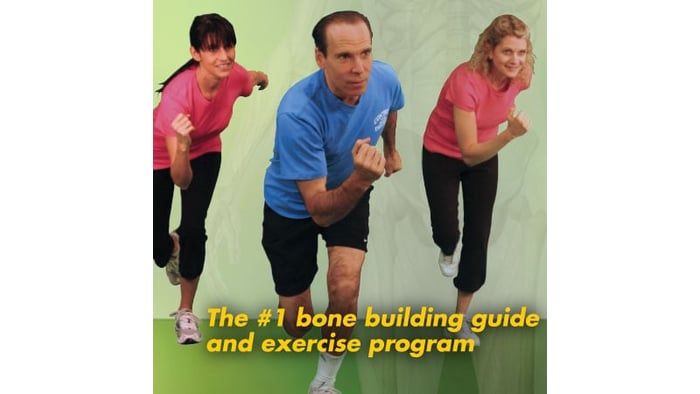Osteoporosis is a condition that weakens your bones and makes them more susceptible to fractures and breaks. It affects millions of people, particularly women, as they age. However, there are several steps you can take to protect your bones and prevent osteoporosis. In this article, we will discuss various methods and lifestyle changes that can help promote bone health.
1. Get Enough Calcium
Calcium is a vital mineral for bone health. Consuming enough calcium-rich foods or taking calcium supplements can significantly contribute to maintaining strong and healthy bones. Dairy products like milk, yogurt, and cheese are excellent sources of calcium. If you’re lactose intolerant or prefer non-dairy options, choose fortified plant-based milk alternatives such as almond or soy milk.
It’s important to note that your body needs vitamin D to effectively absorb calcium. Spend time outdoors to soak up natural sunlight, as it helps your body produce vitamin D. Additionally, consider taking vitamin D supplements if necessary.
2. Incorporate Strength Training Exercises
Engaging in regular strength training exercises can improve bone density and reduce the risk of osteoporosis. Weight-bearing exercises like lifting weights, using resistance bands, or performing bodyweight exercises such as squats and lunges stimulate bone growth. These exercises put stress on your bones, prompting them to become stronger and denser.
Remember to start slow, especially if you are new to strength training. Gradually increase the intensity and duration of your workouts as your body adapts. It’s advisable to consult with a fitness professional to ensure you are using the correct techniques to prevent injury and maximize the benefits of strength training.
3. Maintain a Balanced Diet
A balanced diet is essential for overall health, including your bones. In addition to calcium-rich foods, make sure you consume a variety of other nutrients that contribute to bone health. These include vitamin K, magnesium, and phosphorus. Green leafy vegetables like spinach and kale, nuts and seeds, fish, and lean meats are great sources of these nutrients.
It’s also crucial to limit your intake of foods that can negatively impact bone health. Processed foods, excessive sodium, and sugary drinks can hinder calcium absorption and weaken your bones. Maintaining a healthy weight is equally important, as being underweight or obese can affect bone density.
4. Quit Smoking and Limit Alcohol Intake
Smoking is known to have numerous detrimental effects on your health, including weakening your bones. Chemicals in cigarettes can interfere with bone maintenance, leading to decreased bone density and an increased risk of fractures. If you’re a smoker, quitting is one of the best things you can do to protect your bones and overall health.
Similarly, excessive alcohol consumption can negatively impact bone health. It can interfere with the absorption of calcium and other essential nutrients, leading to weakened bones. Moderation is key – limit your alcohol intake to promote bone health.
5. Regularly Check Your Bone Density
Regular bone density tests are crucial for early detection and prevention of osteoporosis. Speak to your healthcare provider about scheduling a bone density test, especially if you are at a higher risk due to factors such as age, family history, or menopause.
If you are diagnosed with osteoporosis or have low bone density, your healthcare provider can recommend appropriate interventions, including medication or additional supplements, to help manage and improve your condition.
Conclusion
Osteoporosis prevention should be a priority for everyone, regardless of age or gender. By adopting a proactive approach through lifestyle changes and incorporating healthy habits, you can protect your bones and reduce the risk of developing osteoporosis. Remember to prioritize calcium-rich foods, engage in regular strength training exercises, maintain a balanced diet, abstain from smoking, limit alcohol intake, and monitor your bone density regularly. Your bones deserve the best care, so start implementing these practices today to safeguard your bone health for a lifetime.

